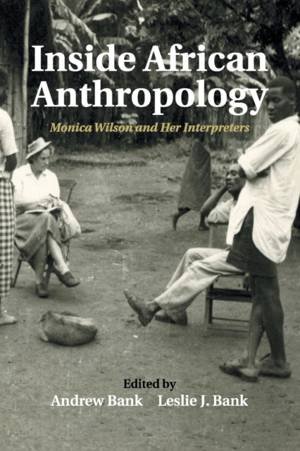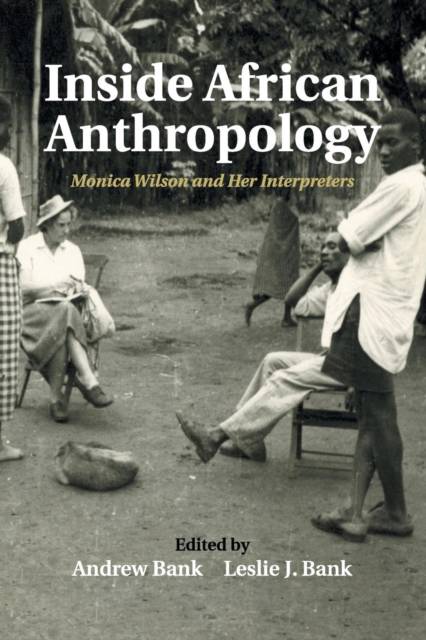
Je cadeautjes zeker op tijd in huis hebben voor de feestdagen? Kom langs in onze winkels en vind het perfecte geschenk!
- Afhalen na 1 uur in een winkel met voorraad
- Gratis thuislevering in België vanaf € 30
- Ruim aanbod met 7 miljoen producten
Je cadeautjes zeker op tijd in huis hebben voor de feestdagen? Kom langs in onze winkels en vind het perfecte geschenk!
- Afhalen na 1 uur in een winkel met voorraad
- Gratis thuislevering in België vanaf € 30
- Ruim aanbod met 7 miljoen producten
Zoeken
Inside African Anthropology
Monica Wilson and her Interpreters
€ 72,45
+ 144 punten
Omschrijving
Inside African Anthropology offers an incisive biography of the life and work of South Africa's foremost social anthropologist, Monica Hunter Wilson. By exploring her main fieldwork and intellectual projects in southern Africa between the 1920s and 1960s through a massive personal archive, the book offers insights into the personal and intellectual life of a leading African anthropologist. Beginning with her origins in the remote Eastern Cape, the authors follow Wilson to Cambridge University and back into the field among the Mpondo of South Africa, where her studies resulted in her 1936 book Reaction to Conquest. Her fieldwork focus then shifted to Tanzania, where she teamed up with her husband, Godfrey Wilson. She later returned to South Africa to begin her teaching career at Fort Hare University and record her Tanzanian research. In the 1960s, Wilson embarked on a new urban ethnography with a young South African anthropologist, Archie Mafeje, one of the many black scholars she trained. This study also provides a meticulously researched exploration of the indispensible contributions of African research assistants and co-researchers to the production of this famous woman scholar's cultural knowledge about mid-twentieth century Africa.
Specificaties
Betrokkenen
- Uitgeverij:
Inhoud
- Aantal bladzijden:
- 374
- Taal:
- Engels
- Reeks:
- Reeksnummer:
- nr. 44
Eigenschappen
- Productcode (EAN):
- 9781108453172
- Verschijningsdatum:
- 15/03/2018
- Uitvoering:
- Paperback
- Formaat:
- Trade paperback (VS)
- Afmetingen:
- 152 mm x 229 mm
- Gewicht:
- 548 g

Alleen bij Standaard Boekhandel
+ 144 punten op je klantenkaart van Standaard Boekhandel
Beoordelingen
We publiceren alleen reviews die voldoen aan de voorwaarden voor reviews. Bekijk onze voorwaarden voor reviews.








